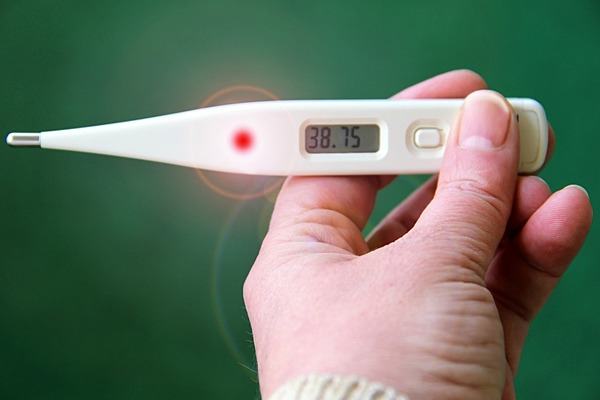
Pain is a part of life, from headaches, bruises, and seasonal bugs to the emotional pain of rejection. Most of the everyday pain we experience is temporary and not indicative of a truly dangerous condition.
That said, there are certain symptoms that may seem minor but do, in fact, require immediate medical attention.
Stick with us for six of such minor pains that may actually be a big deal.
6. Unexplained weight loss
It’s a cruel irony that something we work so hard for under normal circumstances is dangerous when it happens effortlessly. Weight loss is like that. When you are careful to take in fewer calories than you burn and get enough exercise on a weekly basis, you should experience safe weight loss of about a pound per week.
However, if you find you are dropping weight faster than that, for no reason you can determine, it may spell trouble. Various scary diseases can cause unexplained weight loss, including diabetes, liver disease, overactive thyroid, depression, and cancer. If you haven’t made a lifestyle change that could explain the loss of 10 pounds or more over six months, get into your doctor for a checkup.

5. Shortness of breath

Shortness of breath can be scary anytime it happens, but it is usually very temporary. Things like high altitude, extreme temperatures, strenuous exercise, or a Halloween scare can all steal your breath for a bit. However, if you’re just going about your daily business and suddenly struggle to breathe effectively, head into the emergency room. Even if it’s nothing, you can’t mess around with your body’s oxygen supply.
Things like pneumonia, bronchitis, chronic obstructive pulmonary disease, and asthma cause shortness of breath, but in all fairness, you will probably have other clues about these things before you suddenly can’t breathe.
Other conditions can come a bit more out of the blue, like a blood clot in the lung (pulmonary embolism) or a panic attack. Whatever the cause, you must get your breathing stabilized as quickly as possible.
4. Persistent or high fever

Fevers don’t feel very good, so we often jump right to medicating them. Several over the counter medications effectively reduce fever, but it’s actually not a great idea to do this unless your fever is dangerously high (over 103F). That’s because fevers are the body’s defense against infection, and short circuiting them may allow germs to hang around and multiply longer.
If, on the other hand, your fever is high and has persisted for more than three days, it could be a sign that the body is trying to fight a battle it can’t win.
Things like urinary tract infections, tuberculosis, and some lymphomas are known to spike a fever that doesn’t go away. If you’re doing everything right to help your body heal from illness but aren’t making any progress, it’s worth a call to your doctor, just in case.
3. Unexplained changes in bowel habits

This is a tricky one, because bowel movements can vary widely in a single healthy person depending on a lot of factors, including diet, stress, and whether or not they are experiencing minor illness or allergies. And to be honest, most of us don’t really like thinking about our bowel movements once we exit the bathroom.
It’s most important to notice if you are experiencing a persistent change in what’s normal for you. A bout of diarrhea after eating spicy food is no big deal (at least, once it’s over) but if it goes on for days no matter what you eat, that’s a warning sign.
Likewise, if you notice bloody, black, tarry, or pale stools, get checked out right away. You may have an infection, irritable bowel syndrome, or cancer.
2. Swelling in the legs

It may surprise you to learn that issues with your heart are often felt in your extremities first. When the heart struggles to pump blood throughout the body, it’s the areas furthest away that suffer. Blood and other fluids tend to accumulate in the legs, causing swelling.
Heart disease is the number one killer worldwide, in part because it can be caused or affected by so many other conditions. Just a few examples are hypothyroidism (underactive thyroid), diabetes, high blood pressure, coronary artery disease, or an undiagnosed congenital heart defect.
Don’t let swelling in your legs linger too long without a checkup, especially if you notice gray or blue skin. Called cyanosis, this is another indicator of poor circulation.
1. Confusion or personality changes

Sudden onset confusion or personality changes are a scary symptom, especially because the sufferer, not being in their right mind, may not recognize the problem. Stroke victims, for example, often have slurred or nonsensical speech, but in their minds, they are speaking correctly.
Other things that may trigger sudden confusion include infection, mental health conditions, medication interaction or allergy, and nutritional deficits.
It’s hard for us to behave rationally when our brains are in an uproar, but if your loved ones are worried, it’s important to trust them and get to a doctor ASAP. Whether you have a persistent mental fog, notice that you’ve lost abilities you used to have, or suddenly have no idea where you are or what you’re doing, this is not a symptom that can be safely ignored.

Yes, life is pain, but it is also so many other things. When pain becomes persistent or comes out of nowhere for no reason, it is wise to take that seriously.
We often hesitate to go to the doctor if we think “it might be nothing,” but really, “nothing” is the best answer we can get. It is always better to know early, as many diseases or disorders can be treated most effectively when caught right away.
In fact, a couple of the symptoms on this list can indicate a true emergency, like shortness of breath or mental confusion. Don’t hesitate – get to the doctor and get treated to that you can get back to enjoying the pleasurable side of life.



Comments